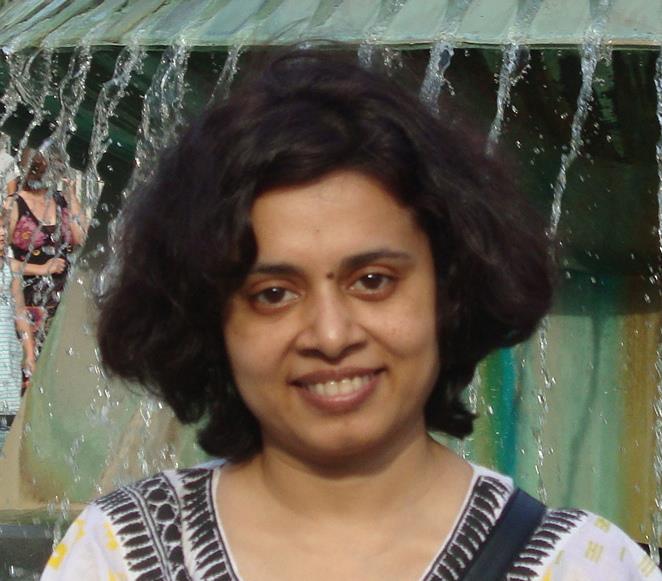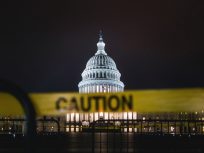Lailufar Yasmin is an Associate Professor with Department of International Relations, University of Dhaka, Bangladesh, and currently undertaking research on ‘secularism in International Relations’ at Macquarie University, Sydney, Australia.
Immanuel Kant, a principle theorist on secularism proposed that human beings should assume responsibility for their acts in the public sphere instead of taking refuge to some divine explanation for such acts. Referring to the principles of secularism, Kant suggested that the goal of Enlightenment was simply a release from the “self-incurred tutelage” of religion rather than the eradication of religion. As part of this release, the public sphere of a modern, enlightened life would be secular i.e. free of religion so that it could engage with the problems of modern life through reason. However, this intended separation between religion and the public sphere is not practiced in its ideal form in secularism’s heartland, i.e., the West.
The idea that the state should maintain a clear neutrality or distance from the religious affairs of its citizenry is practiced in different manners in different western countries. Where the United States have the official emblem of ‘In God We Trust’ and the United Kingdom has an established Church, the Netherlands and France rather maintain a legal ban on self-expression of religious attires in state institutions. It was “democracy” that led to a legislation that shariah and international law should be banned in Oklahoma courts, showing a lack of neutrality on religion by the state. It was only through courts that such a referendum was constitutionally invalidated.
Needless to say that in many western countries, there is an active expression of Christianity in state’s education policies, e.g., Australia. Irrespective of such a practical manifestation of embeddedness of religion into politics in the West, the onus of the non-West is to prove that they are able to contain the influence of religion into their internal politics. While India is often considered as championing such a manifestation of Third World secularism, it is often termed as a pseudo-secularism by close observers of Indian politics. Despite that, the Muslim majority countries have taken up the project of modernity in its crudest form and attempting to rid of ‘religion’ by banning political parties that have their origins in religious organizations. The Bangladesh government has boldly done so recently.
The very first ‘official’ secular country of South Asia, Bangladesh has banned Bangladesh Jamaat-i-Islami (BJI) as a political organization, on the ground that the constitution of the party contradicts the Constitution of Bangladesh. Whereas the Constitution of Bangladesh identifies its people to be the source of all power, it was argued that the BJI constitution rather identifies Allah and Quran to be the source of all power. It only sounds like a matter of technicality as one prominent political commentator of Bangladesh has pointed out. She added that it is up to the people, whom the Constitution has given the power to decide, instead of forcing them to acquiesce to the state’s choices. It seems like democracy is turning into a rule of totalitarianism in Muslim majority countries where FIS received similar treatment in Algeria, the Muslim Brotherhood is being threatened of being banned in Egypt, and Islam-based political parties were ousted from power and banned by the state elites in Turkey, quite a few times.
The elites, blind followers of an unidirectional view of ‘secularism’ tend to forget that the experiences related to nation-state system are different in the non-West than the West. While the Western nation-state system emerged specifically out of internecine religious war, this system emerged in the non-West in its struggle to achieve political sovereignty from the colonial West. What stood as a historical necessity for the West does not have the similar implication for the non-West. Therefore, religion does not need to be quelled from the public sphere in a western manner; rather, religion, especially in Muslim majority countries is a part of the mass culture and identity.
A model of such peaceful coexistence is Malaysia, which shows the commensurability of religion and democracy, with active cultivation from the elites, is conceivable. In fact, people in the Muslim majority country rather have rejected both the authoritarian Islamic principles and authoritarian versions of secularism. Wherever the elites have refused to accept ‘the writings on the wall’, it has erupted into indeterminable crisis. One can therefore question how democratic such steps are where legal methods are used to close democratic spaces for expressing popular opinion.
The self-righteous attitude of such elites tends to overlook the fact the West itself is grappling with the rise of religiosity, although this rise is taking place in a very unconventional manner. While Church membership has declined in many European countries, religion has survived in a manner that authors have termed as ‘believing without belonging’. The issue of religion is rather identified as being an iceberg, where its actual penetration deep within the society is often buried beneath. On the other hand, the rise of religiosity, in its political expression is rather apparent in case of the United States, where in a recent political bid, the state of North Carolina attempted to declare Christianity as the state’s official religion. Although the bid was unsuccessful, the poll data showed the one-third of Americans wanted Christianity as the official religion of the country.
The non-West seems to over-rely the concept of a ‘secularism’ that preaches an absolute eradication of religion from its public sphere without paying attention to West’s own emerging religious dilemma. One reason may lie in the fact that the West presents its ‘unified face’ when comes to dealing with the non-West and the elites, who look towards the West as a model to replicate. It must be added here that there is no existence of any coherent non-West either and this binary creation serves only for the purpose of political gains of conservatives of both sides. We need to come out of such binary creation where one is pitted against the other and therefore, the assumption is that we have to blindly follow the West. Instead, we need to look at ways to accommodate religious differences as well as finding a way for the state to maintain neutrality towards its citizen’s religious affairs. That would be the only plausible way to make democracy work, which would reflect citizen’s choices as well as delimit the options for misuse of religion for political purposes. In other words, the ensuing battle between the elite and the mass in Muslim majority countries only calls for a total re-evaluation of the existing situation from an indigenous perspective instead of copying and pasting the Western notion of secularism that is rooted in their particular set of historical and socio-cultural experiences.






A true religion should improve trust, a bridge to God. A very good belief summons us in group of people to show be in love with toward each other and toward those less lucky, and mobilizes us to feed the hungry, dress the poor, make well the fallen and secure the bereaved. Religion guides our inner thoughts while religious beliefs guides our actions. Spirituality is inward while religious beliefs leads outward. Holiness can be practiced alone, but religion in society. When religious studies makes us more understanding, religious beliefs impels us to perform concrete acts of loving-kindness.